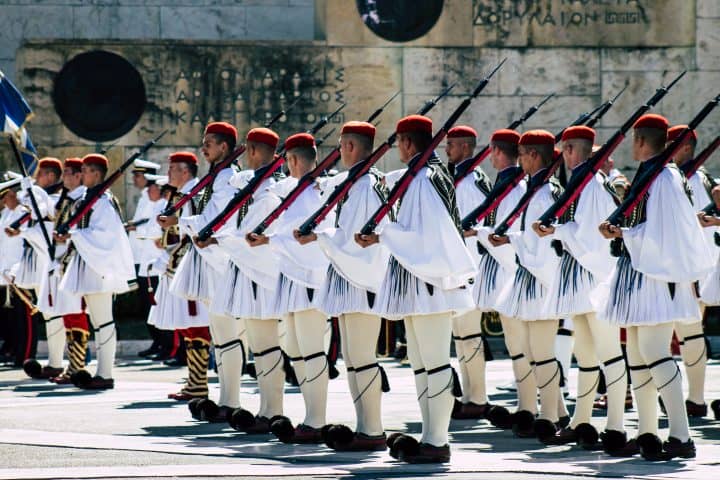 The Greek War of Independence ultimately led to Greece finally ousting the Ottoman Empire from its soil. However, this wasn’t without sacrifice and there were many battles and situations that ultimately led up to this ultimate victory. One of the many engagements of the war occurred at the Siege of Tripolitsa, which was fought between April and September of 1821. Ultimately, this conflict ended with the Greek revolutionaries becoming victorious. Despite this victory, there was also a massacre that occurred after the siege. Here’s more information about this conflict:
The Greek War of Independence ultimately led to Greece finally ousting the Ottoman Empire from its soil. However, this wasn’t without sacrifice and there were many battles and situations that ultimately led up to this ultimate victory. One of the many engagements of the war occurred at the Siege of Tripolitsa, which was fought between April and September of 1821. Ultimately, this conflict ended with the Greek revolutionaries becoming victorious. Despite this victory, there was also a massacre that occurred after the siege. Here’s more information about this conflict:
Leading Up to the Siege
The Siege of Tripolitsa occurred during the early stages of the Greek War of Independence. As Greeks revolted across the country, Ottoman forces sought to reinforce Tripolitsa, which was the administrative center of the Peloponnese. As Greek rebels gained greater control over southern Greece, Ottoman forces reinforced the garrison at Tripolitsa, which was mostly composed of Turkish and Albanian troops. In addition to 12,000 troops under his command, Mustafa Bey, the Ottoman leader at Tripolitsa, was also responsible for several thousand Jewish and Muslim refugees that came into the city seeking safety from the Greek revolutionaries.
About the Siege of Tripolitsa
Once Greek forces had gained control over most of southern and central Greece, General Kolokotronis turned his attention to Tripolitsa, the last source of Ottoman resistance in the area. During the first few months of the siege, Greek forces had a difficult time keeping the Ottoman army bottled up in the city. Ottoman cavalry raids frequently poked large holes in the Greek lines, enabling the Ottomans opportunities to find food and supplies for the city’s beleaguered residents. These raids effectively came to an end in August of 1821 at the Battle of the Trench, which saw the Ottoman garrison lose a large percentage of its cavalry.
As starvation and deprivation became rampant in Tripolitsa, General Kolokotronis entreated Ottoman leaders to surrender. When negotiations between the two sides failed, the Greeks launched a major assault on the city on September 23, cutting down Ottoman resistance and forcing the remainder of the city’s defenders to capitulate.
Massacre of Tripolitsa
Once Greek troops had entered the city, they began massacring Muslim and Jewish refugees en masse. For three days, the revolutionaries tortured and killed an estimated 6,000 to 15,000 civilians. Accounts from the era, including one by General Kolokotronis himself, tell of horrific atrocities committed by the revolutionaries, who did not discriminate by age or gender in choosing their victims. Eventually, General Kolokotronis and his officers were able to regain control of the Greek army and stopped the killing. Nevertheless, the massacre remains a low point in Greek history.
In the end, the Siege of Tripolitsa is an important part of the Greek War of Independence. In addition to driving the Ottoman forces out of the Peloponnese, the engagement secured a large store of arms and ammunition for the revolutionaries. Moreover, the Siege of Tripolitsa served as a powerful morale booster for the Greek forces, proving once and for all that they could stand against the might of the Ottoman Empire.
Source:

